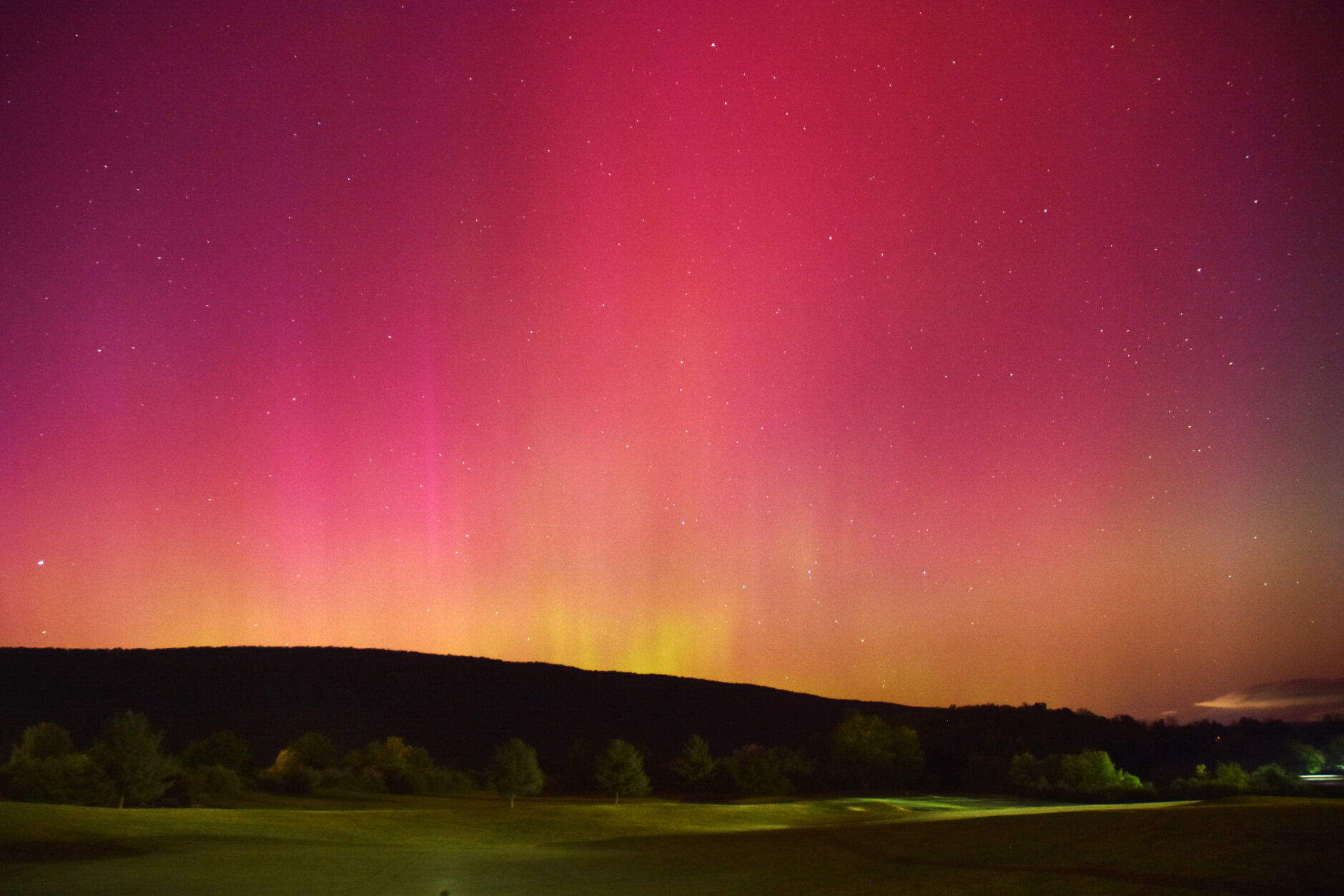
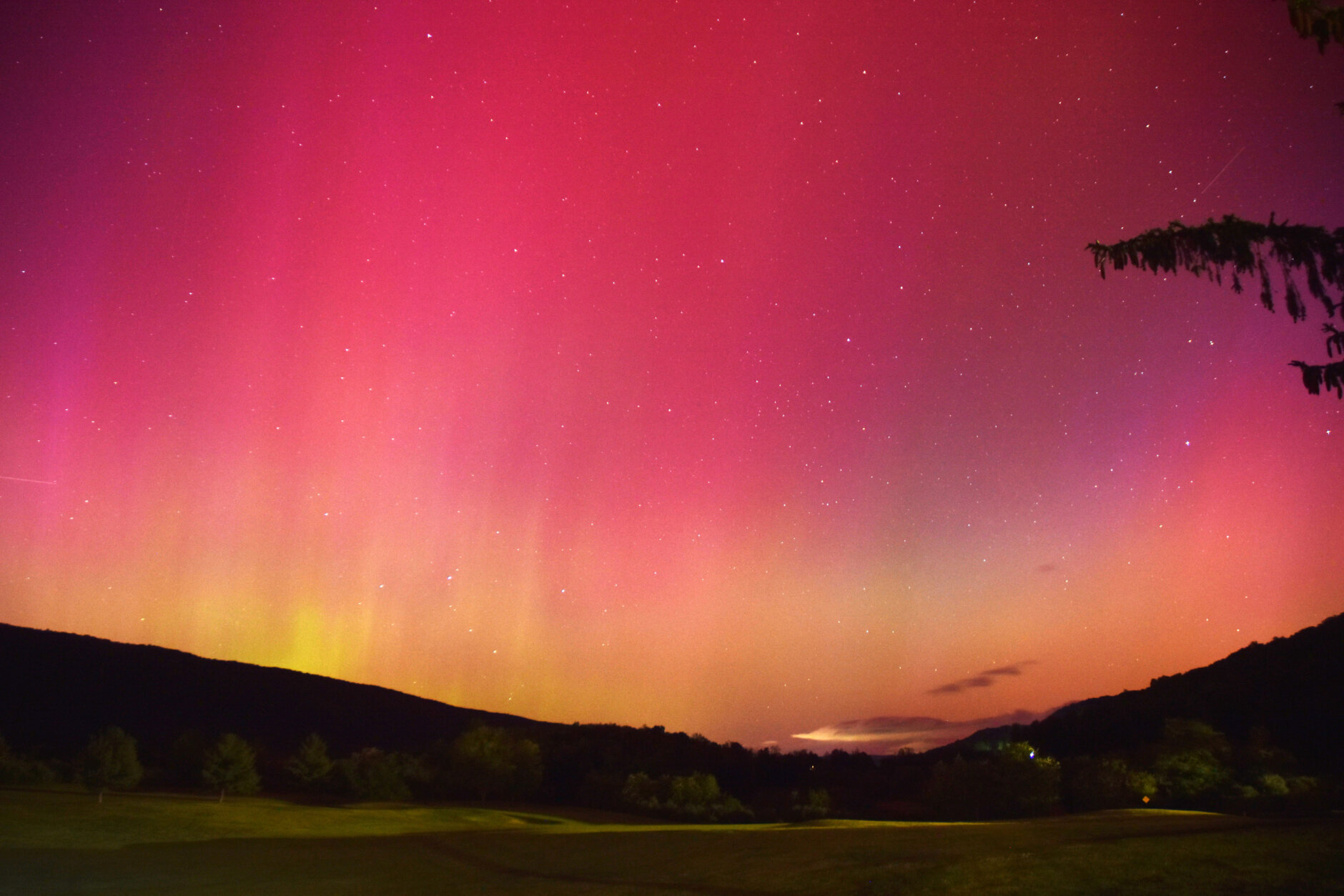
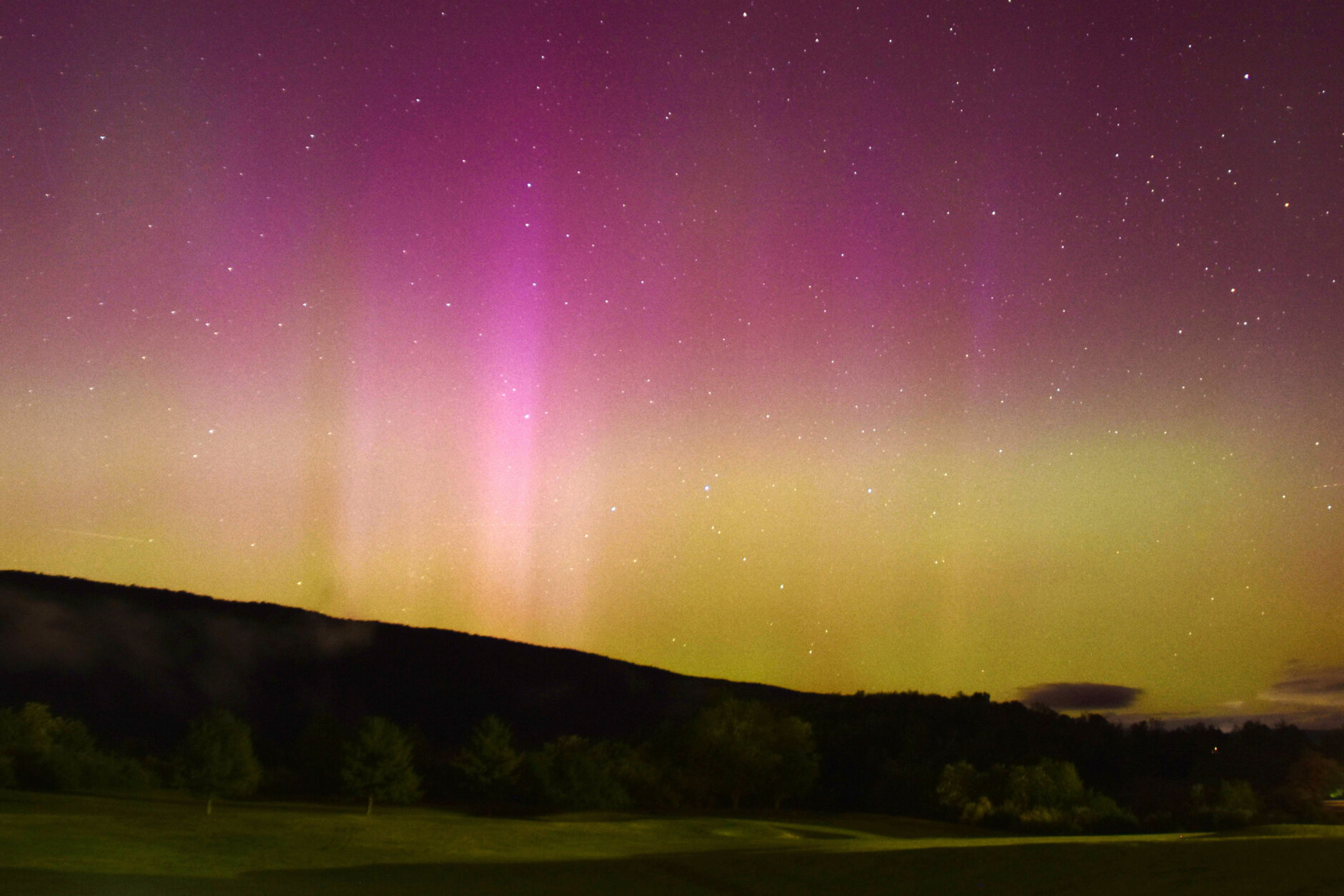
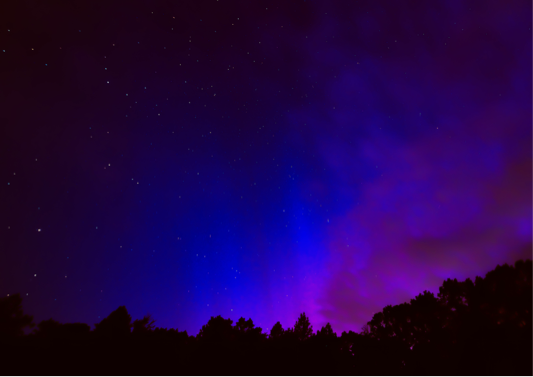

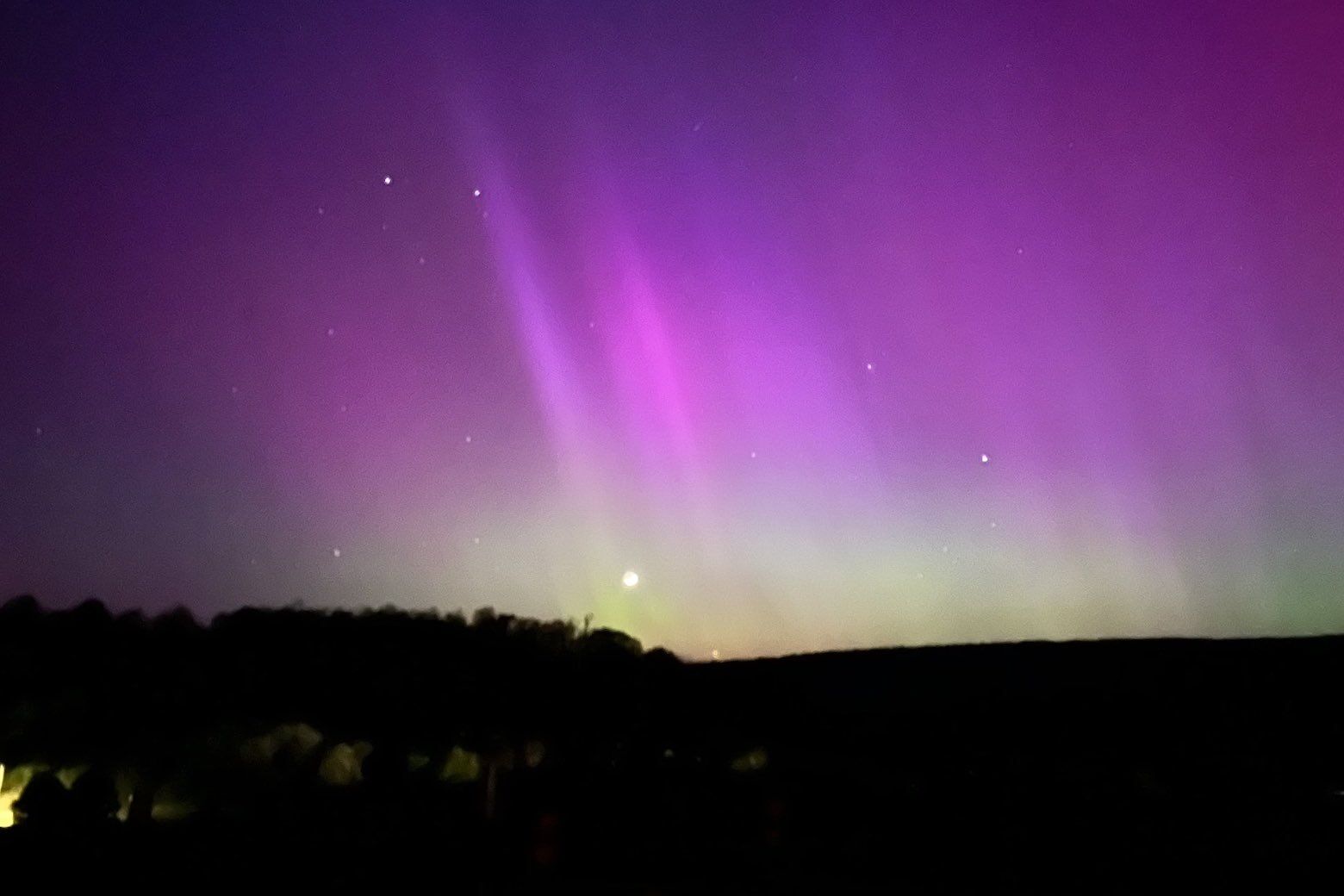
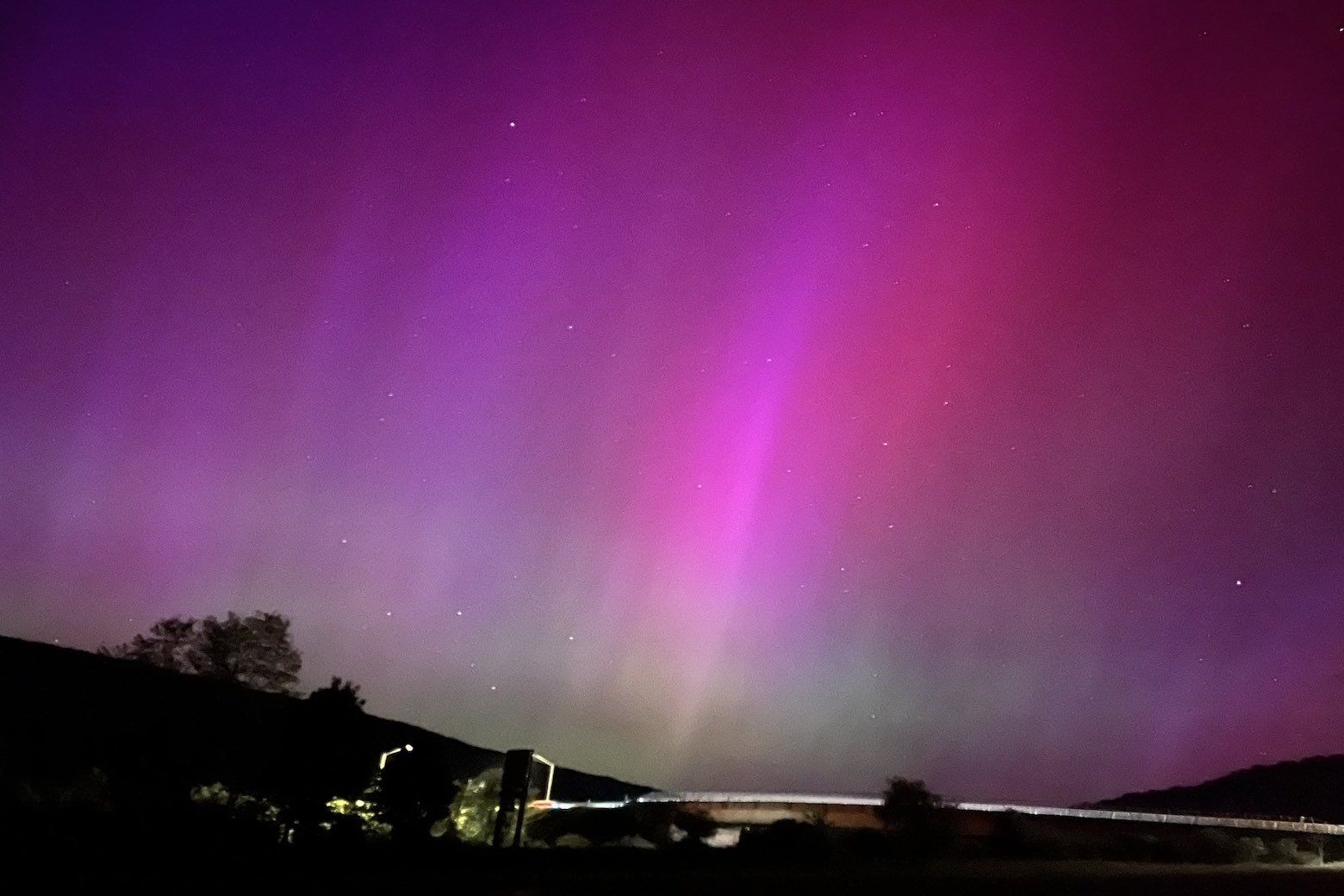
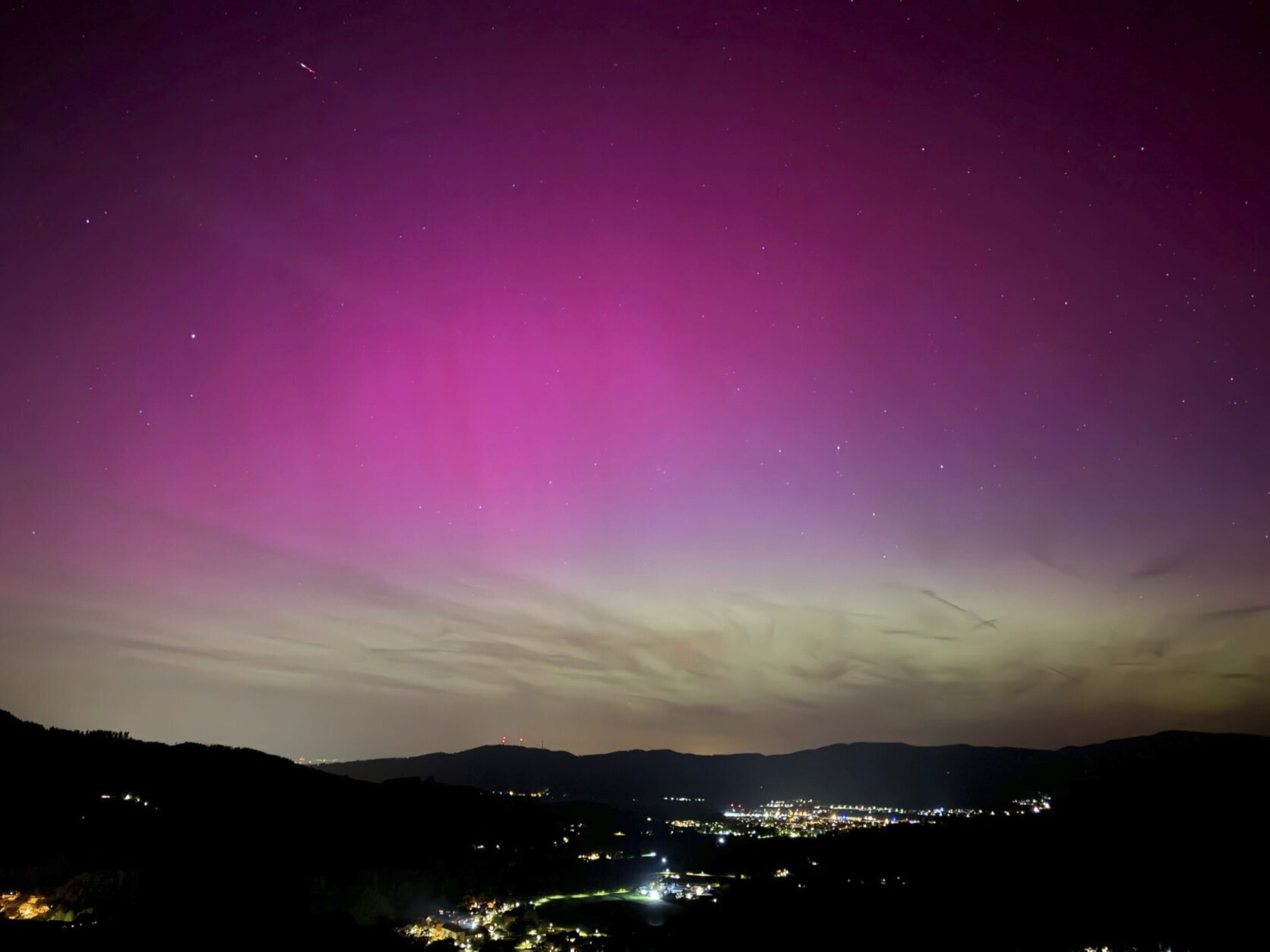
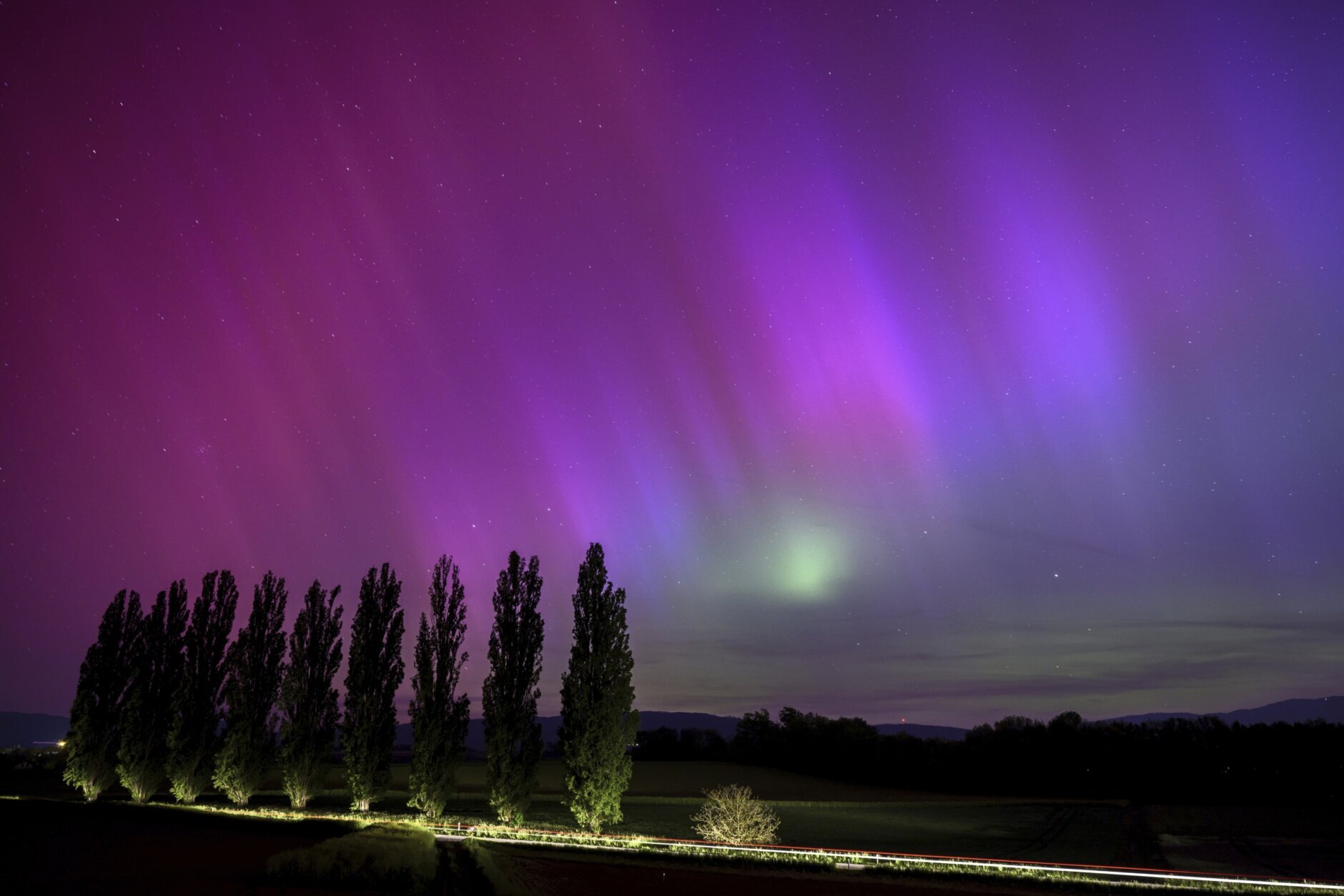
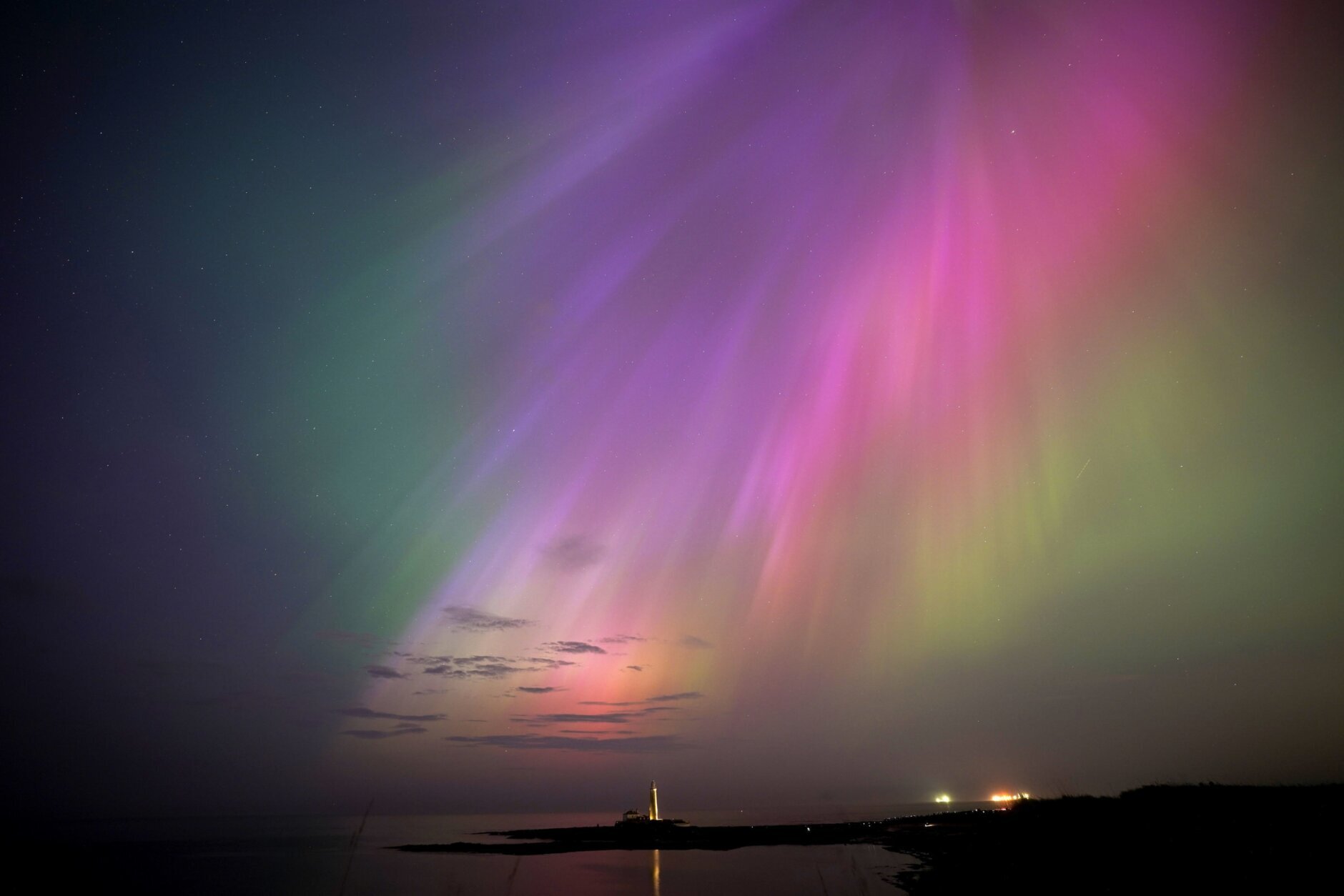
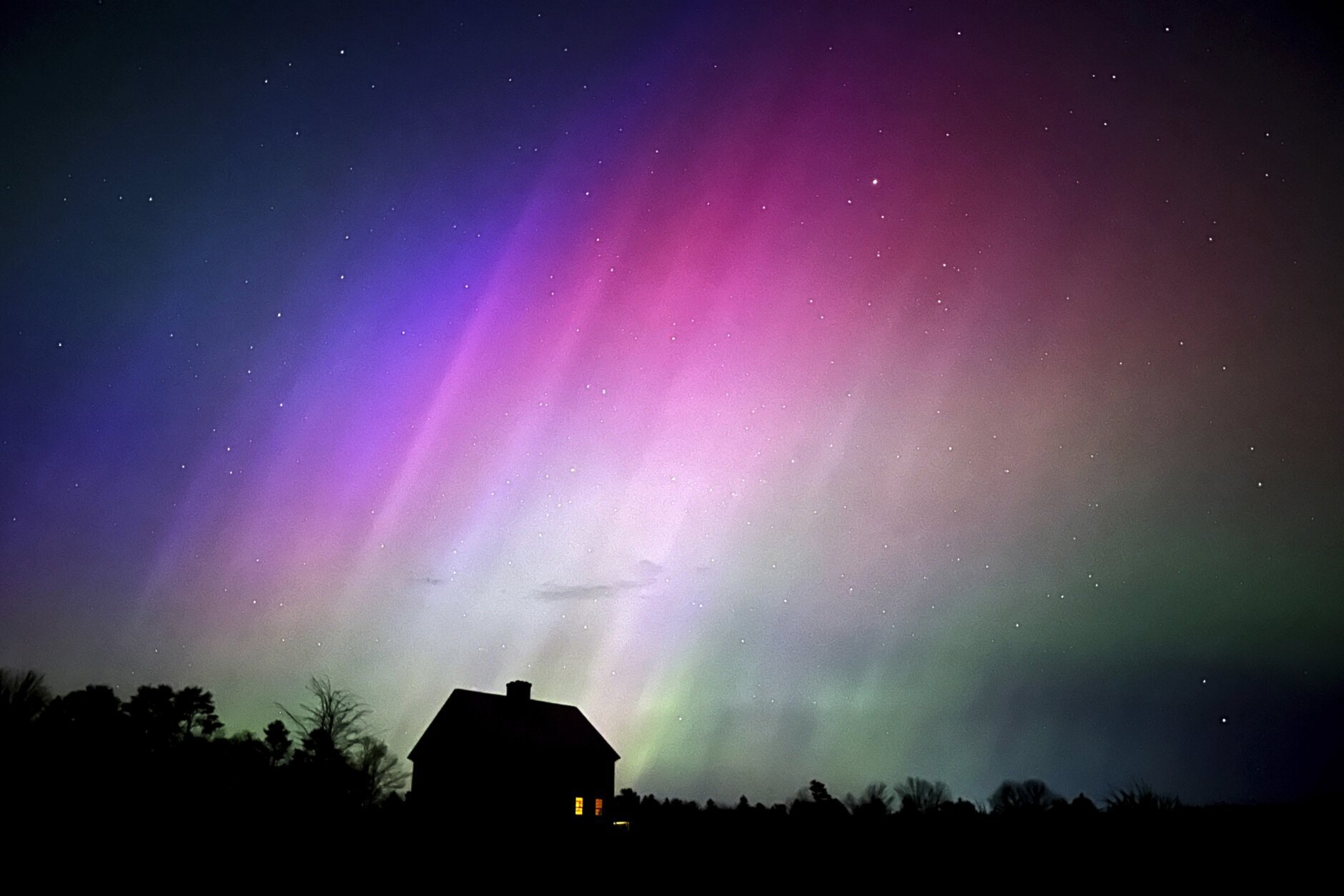
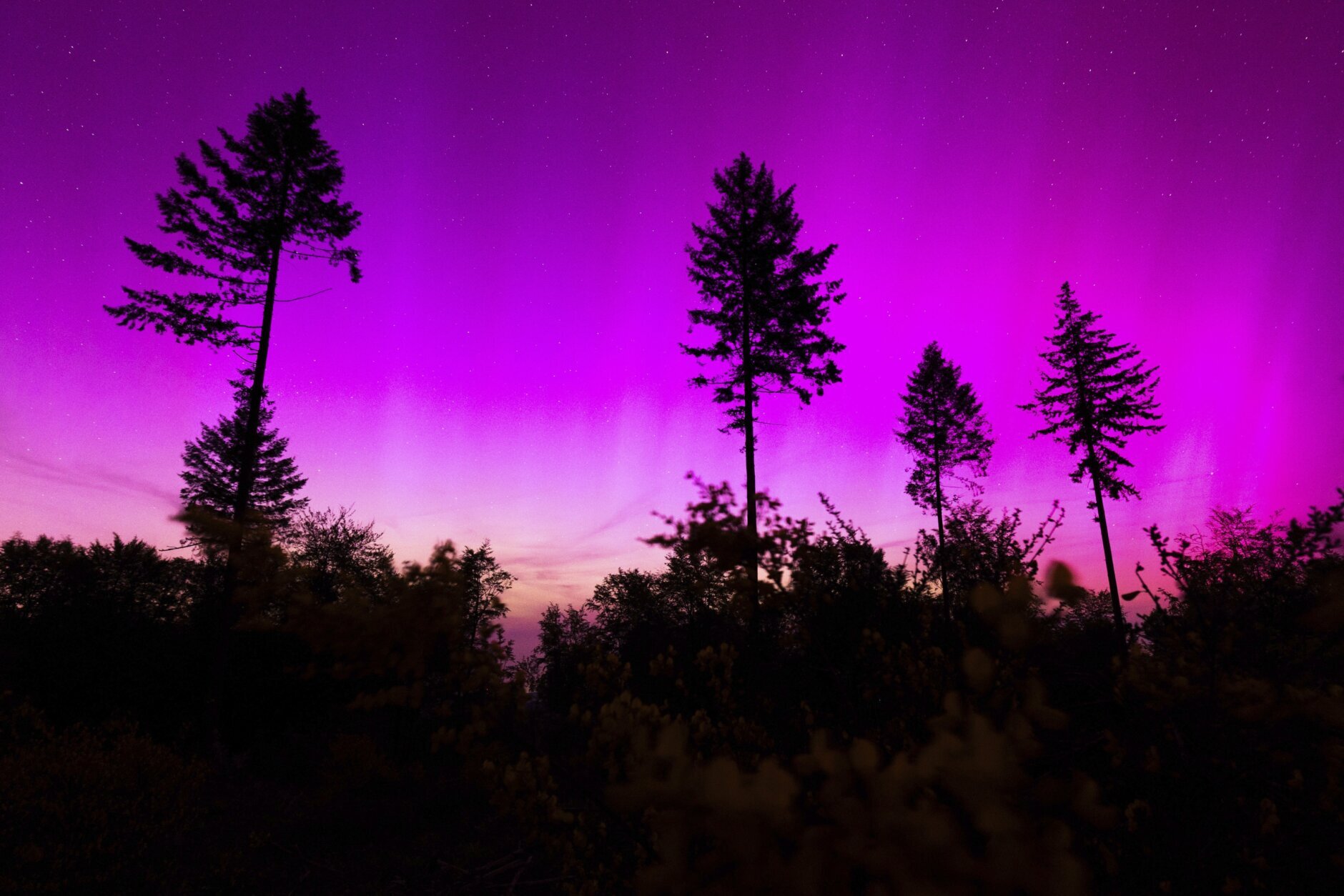
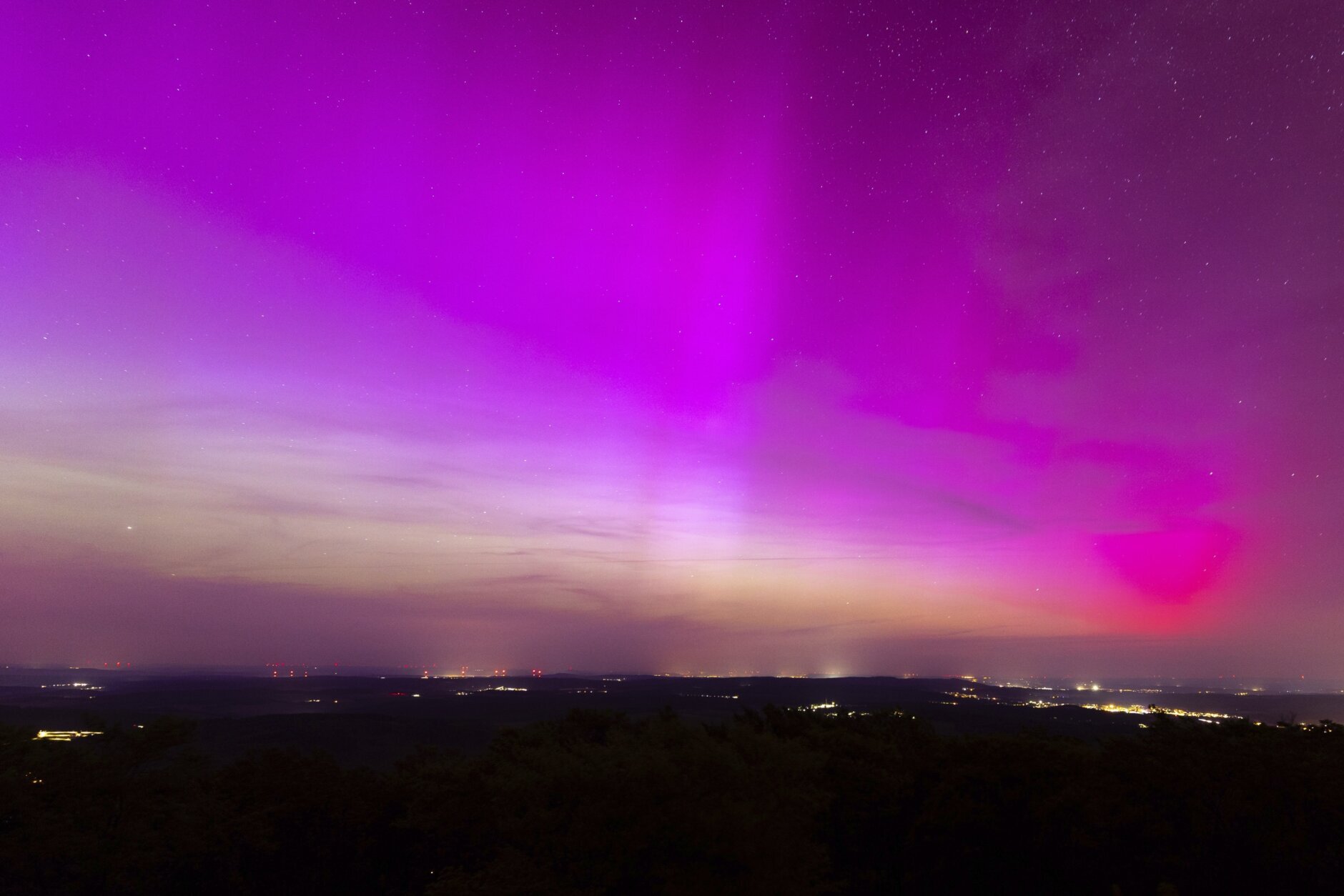
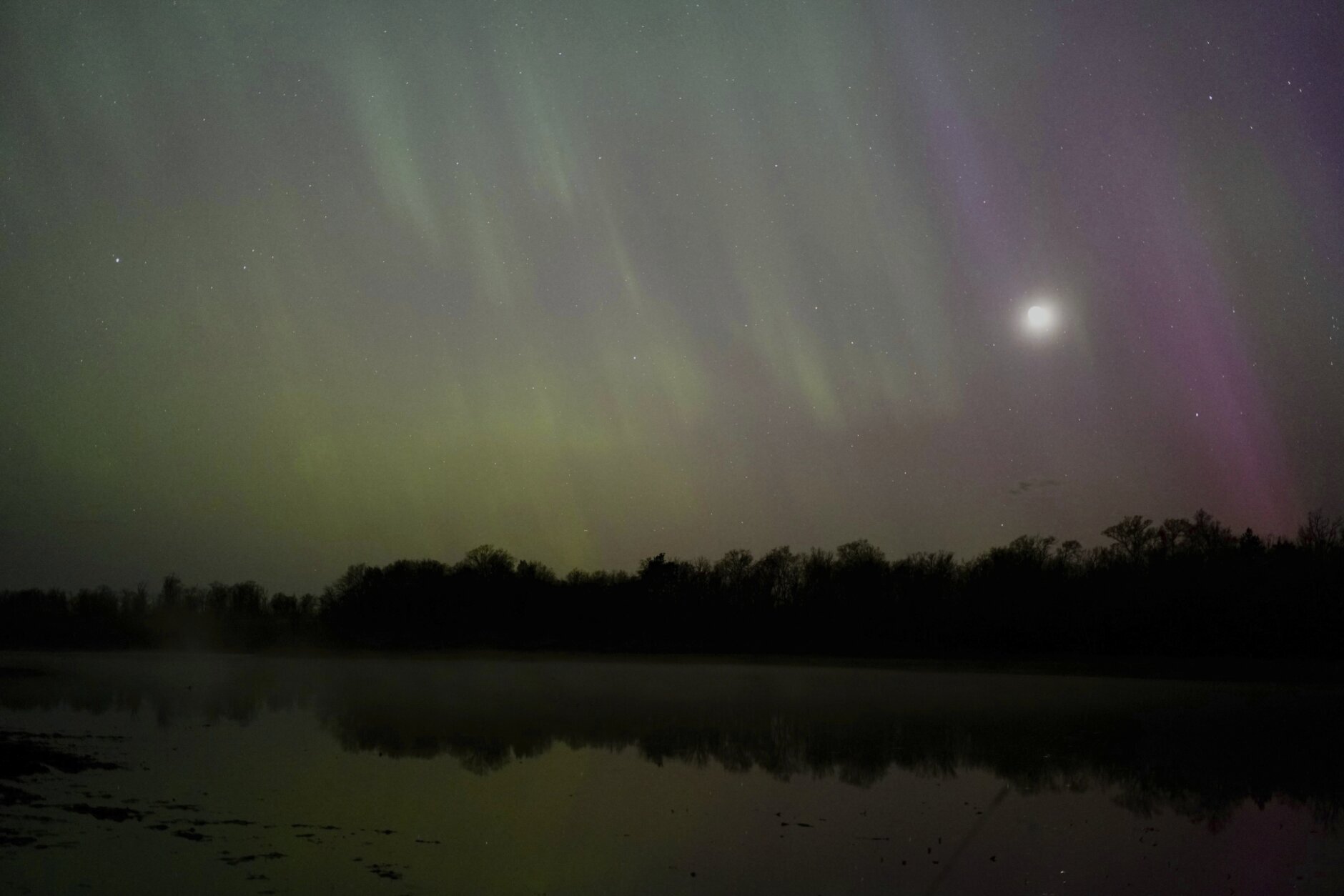
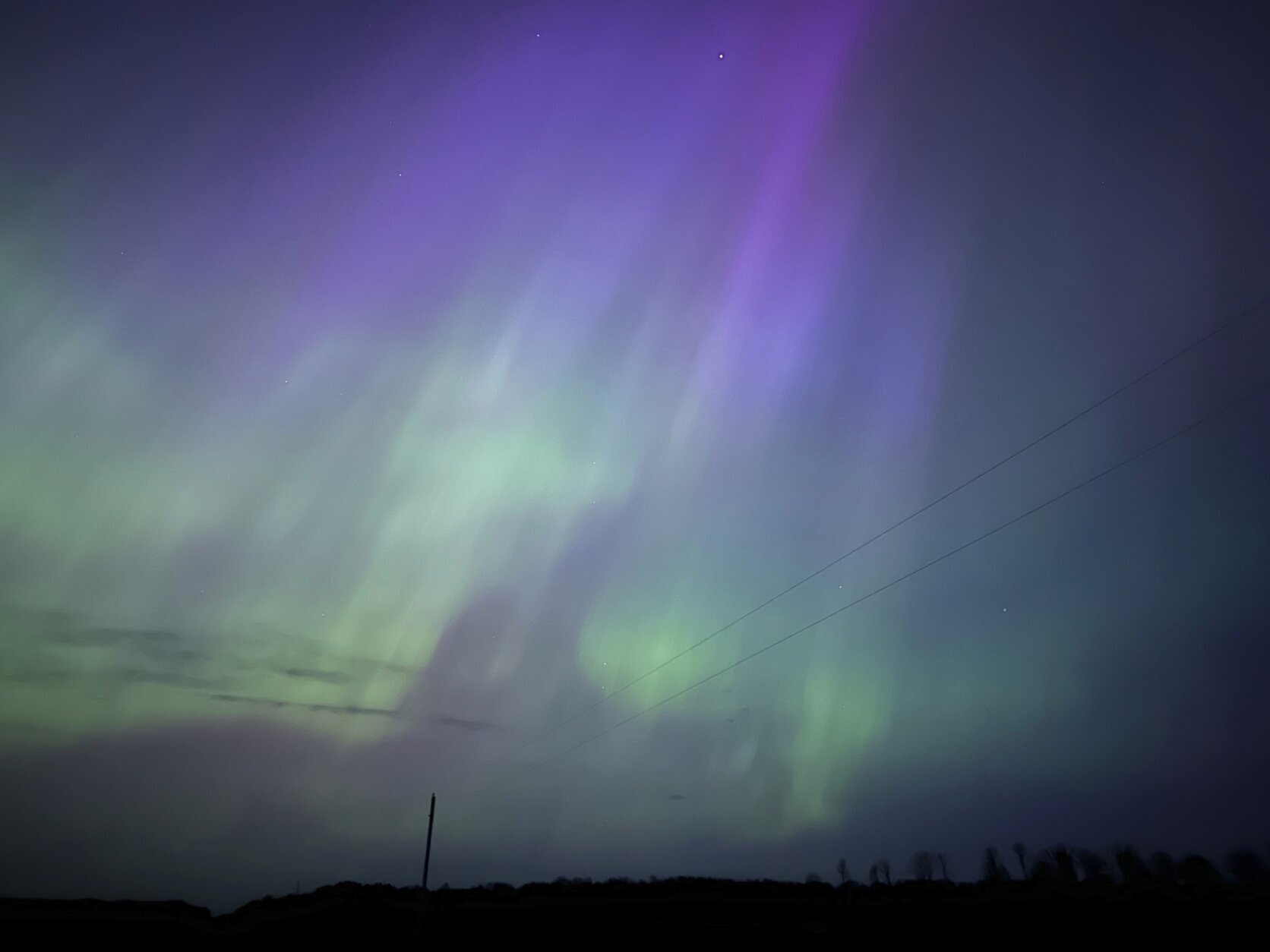
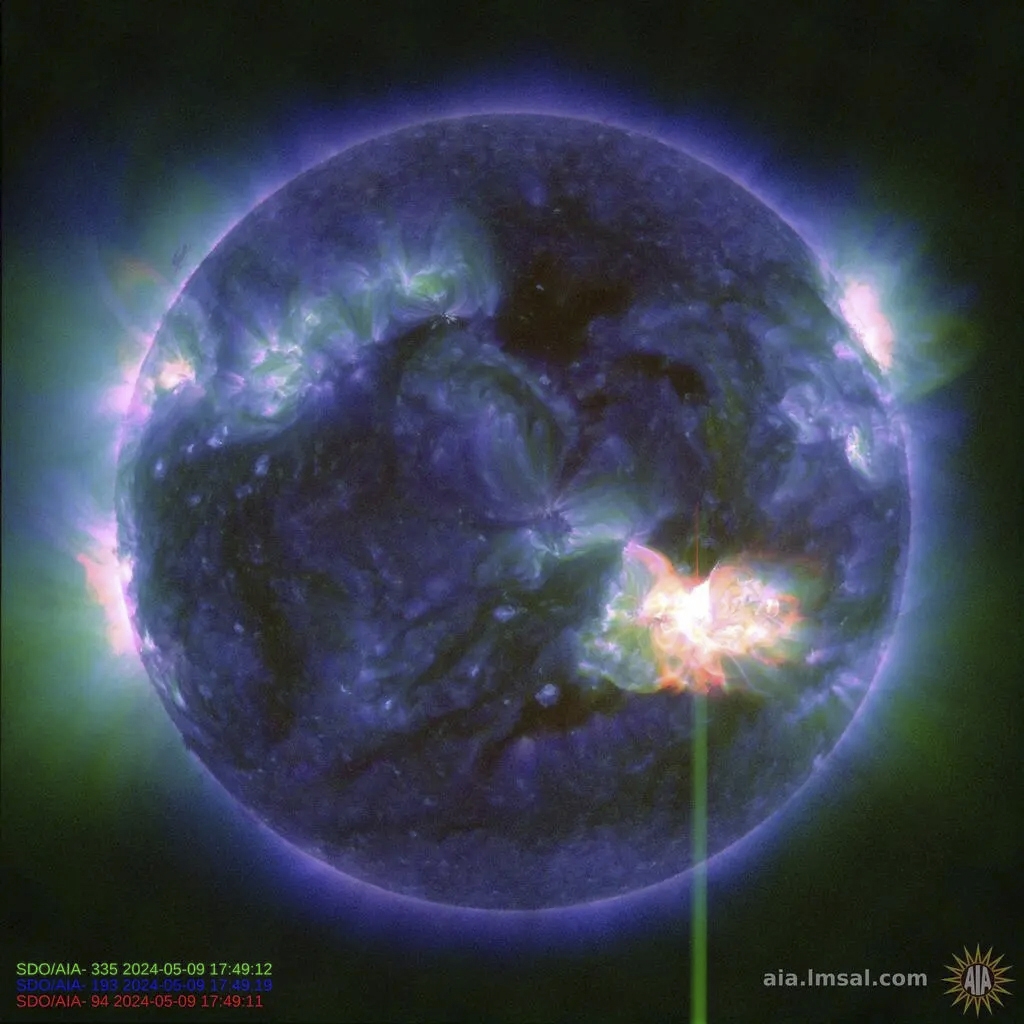
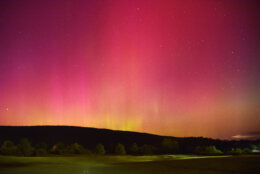
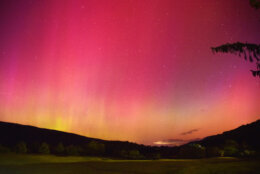
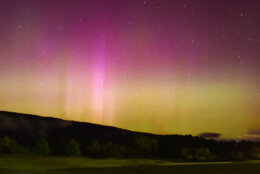
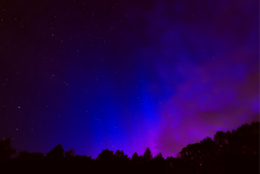
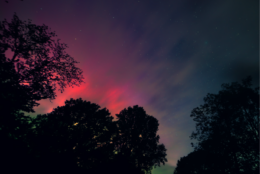

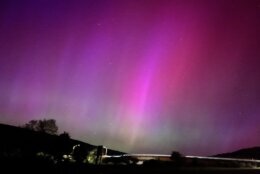
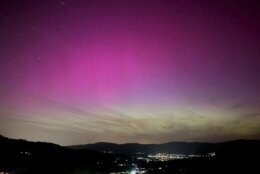
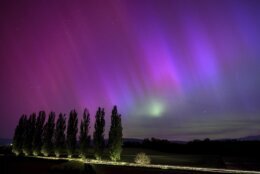
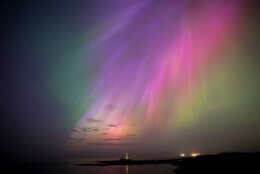
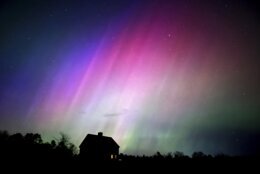
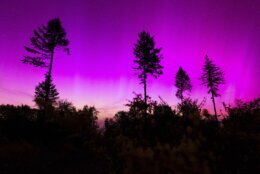
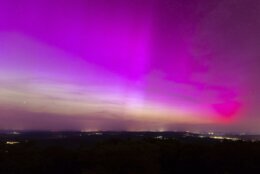
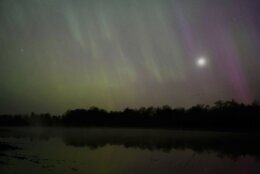
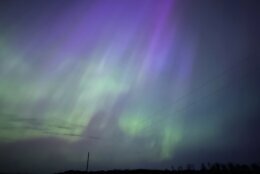
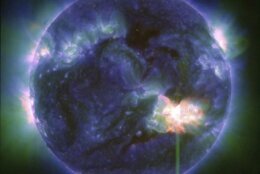
CAPE CANAVERAL, Fla. (AP) — An unusually strong solar storm hitting Earth produced stunning displays of color in the skies across the Northern Hemisphere early Saturday, with no immediate reports of disruptions to power and communications.
The U.S. National Oceanic and Atmospheric Administration issued a rare severe geomagnetic storm warning when a solar outburst reached Earth on Friday afternoon, hours sooner than anticipated. The effects of the Northern Lights, which were prominently on display in Britain, were due to last through the weekend and possibly into next week.
Americans as far south as Alabama and Northern California could be treated to a show of the northern lights.
Many in the U.K. shared phone snaps of the lights on social media early Saturday, with the phenomenon seen as far south as London and southern England.
There were sightings “from top to tail across the country,” said Chris Snell, a meteorologist at the Met Office, Britain’s weather agency. He added that the office received photos and information from other European locations including Prague and Barcelona.
NOAA alerted operators of power plants and spacecraft in orbit, as well as the Federal Emergency Management Agency, to take precautions.
“For most people here on planet Earth, they won’t have to do anything,” said Rob Steenburgh, a scientist with NOAA’s Space Weather Prediction Center.
The storm could produce northern lights as far south in the U.S. as Alabama and Northern California, NOAA said. But it was hard to predict and experts stressed it would not be the dramatic curtains of color normally associated with the northern lights, but more like splashes of greenish hues.
“That’s really the gift from space weather: the aurora,” Steenburgh said. He and his colleagues said the best aurora views may come from phone cameras, which are better at capturing light than the naked eye.
Snap a picture of the sky and “there might be actually a nice little treat there for you,” said Mike Bettwy, operations chief for the prediction center.
The most intense solar storm in recorded history, in 1859, prompted auroras in central America and possibly even Hawaii. “We are not anticipating that” but it could come close, NOAA space weather forecaster Shawn Dahl said.
This storm poses a risk for high-voltage transmission lines for power grids, not the electrical lines ordinarily found in people’s homes, Dahl told reporters. Satellites also could be affected, which in turn could disrupt navigation and communication services here on Earth.
An extreme geomagnetic storm in 2003, for example, took out power in Sweden and damaged power transformers in South Africa.
Even when the storm is over, signals between GPS satellites and ground receivers could be scrambled or lost, according to NOAA. But there are so many navigation satellites that any outages should not last long, Steenburgh noted.
The storm prompted government forecasters to warn of potential disruptions to communications systems, the power grid and satellite operations, but it could also put on a fantastic light display in the night sky.
“If you happen to be in an area where it’s dark and cloud free and relatively unpolluted by light, you may get to see a fairly impressive aurora display, and that’s really the gift from space weather, is the aurora,” Rob Steenburgh, a space scientist with the National Oceanic and Atmospheric Administration’s Space Weather Prediction Center, told reporters Friday morning.
The sun has produced strong solar flares since Wednesday, resulting in at least seven outbursts of plasma. Each eruption, known as a coronal mass ejection, can contain billions of tons of plasma and magnetic field from the sun’s outer atmosphere, or corona.
The flares seem to be associated with a sunspot that’s 16 times the diameter of Earth, NOAA said. It is all part of the solar activity ramping up as the sun approaches the peak of its 11-year cycle.
NASA said the storm posed no serious threat to the seven astronauts aboard the International Space Station. The biggest concern is the increased radiation levels, and the crew could move to a better shielded part of the station if necessary, according to Steenburgh.
Increased radiation also could threaten some of NASA’s science satellites. Extremely sensitive instruments will be turned off, if necessary, to avoid damage, said Antti Pulkkinen, director of the space agency’s heliophysics science division.
Several sun-focused spacecraft are monitoring all the action.
“This is exactly the kinds of things we want to observe,” Pulkkinen said.
___
The Associated Press Health and Science Department receives support from the Howard Hughes Medical Institute’s Science and Educational Media Group. The AP is solely responsible for all content.
___
CBS News contributed to this article.
Copyright © 2026 The Associated Press. All rights reserved. This material may not be published, broadcast, written or redistributed.







